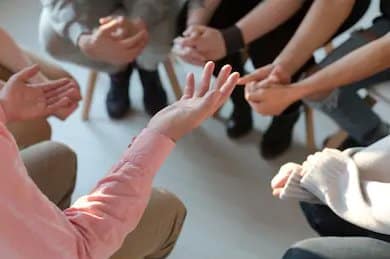Group Support
 At first, the idea of participating in a group might seem awkward or intimidating. Why would I want to share my problems with strangers? I have found however, that participants are often pleasantly surprised by how helpful or rewarding their experience can be. Members have commented that they really appreciated the unconditional support and concern they received from the other group participants.
At first, the idea of participating in a group might seem awkward or intimidating. Why would I want to share my problems with strangers? I have found however, that participants are often pleasantly surprised by how helpful or rewarding their experience can be. Members have commented that they really appreciated the unconditional support and concern they received from the other group participants.
Group members can provide a “sounding board”, meaning, you can receive a wide range of perspectives of Being part of a group can also offer you insights to into your own behavior that may be difficult for you to see otherwise.n your situation and that can help you deal with your own problems better. Hearing from others with similar issues can help you feel less isolated. Whether you are dealing with panic attacks, depression, relationship conflicts or a difficult life transition, many people feel a sense of relief that they are not alone and that others are “in the same boat.” Groups help members learn coping skills and strategies to manage problems their problems in healthier ways. Members will often share experiences; both their successes and failures and others can learn from this information.
Lastly, healing and recovery can be much faster in the group setting. Group members often push themselves harder when the see how their peers are handling their problems in more effective ways.
Support Groups:
- DBT Skills Group for Adolescents and Teens
- Parents of Special Needs Children (Adult and Children Groups)
- Women Over 50 Life Transitions Group
Please let me know if you are interested in joining a group and we can discuss the details further! (Some groups are still forming so there might be some lead time before they begin).
